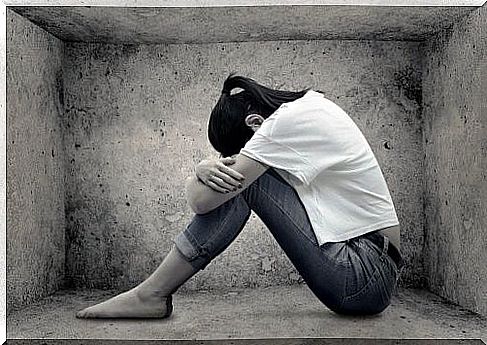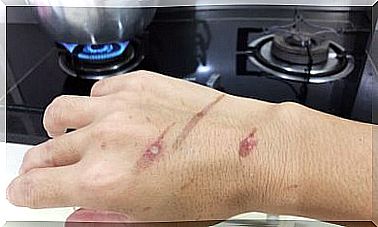Derealization Disorder
Derealization disorder is a psychological disturbance that occurs when a person perceives the outside world as strange or unreal.
Usually this is a temporary alteration. In fact, it can be caused by conditions of stress, fatigue or emotional trauma. Similarly, it can be due to organic alterations, such as substance use or trauma.
Derealization disorder, the feeling of living inside a dream

Derealization disorder is considered more of a symptom than a disorder in itself. It is a dissociative phenomenon in which the person alters their perception of the environment, perceiving it as strange.
Derealization usually occurs in conjunction with another type of similar disorder: depersonalization disorder. In this, the person feels separated from his own body, feeling that he is observing himself from the outside.
It is necessary to clarify that derealization is associated with a feeling of unreality with respect to the outside world, while depersonalization maintains this feeling of unreality, but referred to oneself. Both phenomena are closely related and are sometimes used interchangeably, although they have slight nuances.
They are highly prevalent in the population. They tend to be presented in isolation, as a symptom derived from some stressful event or event. According to the Diagnostic and Statistical Manual of Mental Disorders, about 5 percent of adults in the United States will have an episode of depersonalization or derealization at some point in their lives.
Therefore, they are generally brief and reversible episodes. In fact, most of these episodes do not meet the requirements to be classified as disorders.
The alteration of the senses
People with derealization disorder perceive objects and people as strangers. They often look at reality or familiar places in a different way, without really knowing what is the cause of this difference.
This alteration in perception can affect the senses of sight, smell, or taste. Often affected people have feelings of déjà vu, feeling that the events they experience are not real or that certain elements of their environment have changed in shape or size.
It is common for people with derealization disorder to experience a kind of sensory confusion, difficult to describe, in which they feel that their environment is devoid of life or emotional nuance. Therefore, these people may have a decreased emotional response or lack of empathy.
Causes of derealization disorder

Derealization symptoms can occur due to the existence of certain neurological conditions such as migraines, epileptic seizures or head trauma. This type of brain damage can cause an alteration in the connections of the sensory nerves, causing the disconnection with reality.
At other times, symptoms appear after suffering intense trauma or stress. As a consequence, the person may suffer from a disorder in which the sensory and emotional processes are separated. In principle, this would explain the feeling of unreality.
These disorders can be accentuated in situations of stress, anxiety and anguish. In fact, they accentuate the disconnection of the person with himself or with his environment. Likewise, the consumption of drugs or psychoactive substances can lead to the appearance of these symptoms.
Persistent Derealization Disorder
When the appearance of derealization disorder is not associated with drug use, but is rather persistent, it is usually due to one of the following causes:
- Having suffered some type of physical or psychological abuse, especially during childhood.
- Witnessing some traumatic event, such as some type of abuse or domestic violence.
- Having had a traumatic childhood with a negligent upbringing.
- Having experienced a painful event, such as the death of a family member.
In all these cases, the experience of a traumatic event that is difficult to assimilate causes the perceptual and sensory processes to be dissociated as a defense mechanism. It is then a protection mechanism of the mind. So, it is detached from reality in order to mitigate intense emotional pain.

At times, especially when there has been repeated abuse during childhood, this dissociation becomes a dissociative personality disorder. In these cases, the treatment is complicated and requires psychological therapy to overcome or stop experiencing a derealization.
In addition, other factors that can increase the risk of suffering from these types of symptoms are certain personality characteristics. For example, those that make certain people tend to avoid or deny traumatic experiences to a greater extent.
Treatment
The main treatment is based on psychotherapy. Through this, the affected person can understand what is happening to them and what their disorder consists of, as well as learn to gradually accept the traumatic event that has led to the appearance of derealization.
Sometimes it may be necessary to combine psychotherapy with the use of drugs, which can help relieve symptoms of acute stress. There are no specific medications approved to treat this disorder, although medications may be used for specific symptoms such as anxiety or depression.
Derealization disorder as such
Almost all of us have experienced derealization symptoms at some time. However, when people talk about a derealization disorder, it is because the symptoms are disabling or cause great discomfort to the person.
In general terms, although this disorder generates a lot of discomfort and is very unpleasant for those who suffer from it, it is not dangerous and has treatment.
Once the treatment has started, it will be essential to follow the specialist’s instructions. It is also advisable to learn about the disease and stay in contact with other close people, since with support and affection it is possible to feel better.









